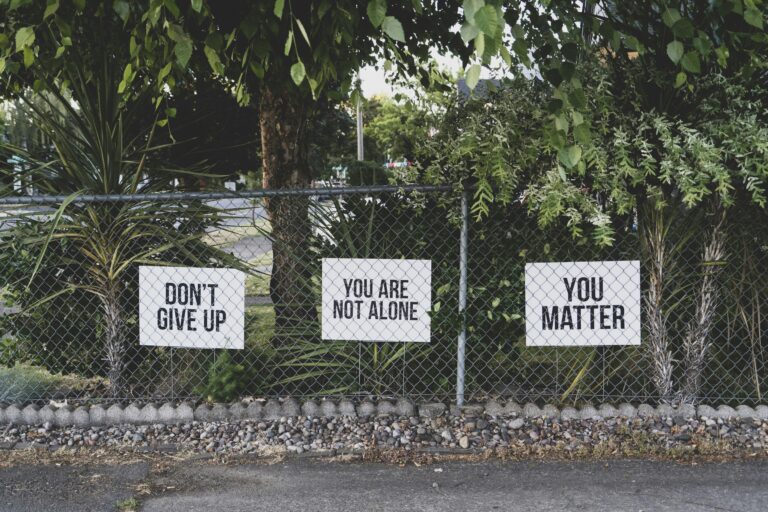Are you tired of constantly arguing with your partner? Do you wish there was a better way to handle disagreements? Look no further! In this article, we will discuss some effective strategies that can help you navigate through those heated moments with ease. By understanding the importance of active listening, empathy, and compromise, you’ll be able to build a stronger connection with your partner and resolve conflicts in a peaceful and respectful manner. So buckle up and get ready to improve your relationship by mastering the art of handling disagreements!
Active Listening
When it comes to handling disagreements with your partner, one of the most important skills you can develop is active listening. This means giving your full attention to your partner while they are speaking and really hearing what they have to say. By maintaining eye contact and avoiding interrupting, you show your partner that you value their perspective and that their words are important to you. In addition, paraphrasing and summarizing what your partner has said can help clarify any misunderstandings and demonstrate that you are truly listening and understanding their point of view.
Effective Communication
Effective communication is essential in any relationship, especially when it comes to addressing disagreements. Using “I” statements instead of “you” statements can help avoid placing blame and promote constructive conversation. By expressing your own feelings and needs, you can avoid accusing or criticizing your partner. Remember to be open to feedback from your partner as well, as this will strengthen your communication and foster a deeper understanding of each other’s perspectives.

Cooling Off Period
In the heat of an argument, emotions can run high and it may be difficult to have a productive conversation. Recognizing when emotions are escalating is key in maintaining a healthy dialogue. If you and your partner find yourselves becoming too heated or frustrated, it’s okay to agree on taking a break. Engaging in self-care activities, such as going for a walk or meditating, can help calm your mind and allow you both to regain composure. Once you have had time to cool off, return to the conversation with a clear head and better chances of resolving the disagreement.
Finding Common Ground
Disagreements often arise because of differing perspectives and priorities. However, finding common ground can help build a bridge between your viewpoints. By identifying shared goals, you can remind yourselves of what you both want for the relationship. It is important to focus on areas of agreement rather than solely on the areas of disagreement. Seeking compromise and exploring win-win solutions can help you reach a resolution that satisfies both of your needs and strengthens your bond as a couple.

Respecting Differences
Respecting differences is crucial in any relationship. Each individual brings their own unique perspective, thoughts, and opinions to the table, and it’s essential to acknowledge and embrace this diversity. Avoid invalidating or dismissing your partner’s feelings, even if you don’t agree with them. Instead, practice empathy and try to understand where they are coming from. By respecting each other’s differences, you create a safe and inclusive space that encourages open and honest communication.
Taking Turns
Ensuring that both partners have an equal opportunity to express themselves is vital in resolving disagreements. Establishing a fair speaking order can help prevent one person from dominating the conversation. Additionally, setting a time limit for each person allows for a focused and balanced discussion. Encourage active participation from both sides, and remember to listen attentively when it is your partner’s turn. This will help create an atmosphere of equality and mutual respect in your communication.

Finding the Root Cause
Sometimes, disagreements surface due to underlying issues that haven’t been properly addressed. In order to truly resolve the disagreement, it’s important to probe deeper into the issue and explore any underlying emotions that may be at play. By identifying triggers or patterns that contribute to the disagreement, you can work together to find constructive solutions. Additionally, addressing any unresolved past conflicts can help prevent similar issues from arising in the future, promoting a healthier and more harmonious relationship.
Seeking Mediation
In some cases, finding a neutral party to mediate can be helpful in resolving disagreements. This may involve choosing a trusted counselor or therapist who can provide guidance and suggestions to both you and your partner. Seeking mediation is not a sign of weakness, but rather a proactive step towards finding a resolution together. Follow the advice of the mediator and be open to their perspective. By engaging in this process, you demonstrate your commitment to improving the relationship and finding common ground.
Building Trust
Trust is the foundation of a strong and healthy relationship. When handling disagreements with your partner, it is crucial to practice honesty and transparency. This means being truthful in your communication and actions, and keeping your promises and commitments. If mistakes are made, apologize sincerely, and be willing to forgive. Building trust requires consistent effort from both partners, so work on rebuilding trust by demonstrating your reliability, dependability, and loyalty.
Continuous Improvement
Disagreements are natural in any relationship, but it’s important to learn from past experiences and continuously improve your communication skills. Reflect on past disagreements to identify areas where you can grow and develop as an individual and as a couple. Seeking personal growth and attending relationship workshops or counseling can provide valuable insights and strategies to enhance your communication and conflict resolution abilities. Embrace change and adapt your communication strategies to meet the evolving needs of your relationship.
Handling disagreements with your partner is a skill that can be learned and mastered over time. By practicing active listening, effective communication, and respecting differences, you can build stronger connections and resolve conflicts in a healthy and constructive manner. Remember to take breaks and engage in self-care when emotions are high, and always work towards finding common ground and understanding each other’s perspectives. With continuous effort and improvement, you can strengthen your relationship and create a more loving and harmonious environment for both you and your partner.






